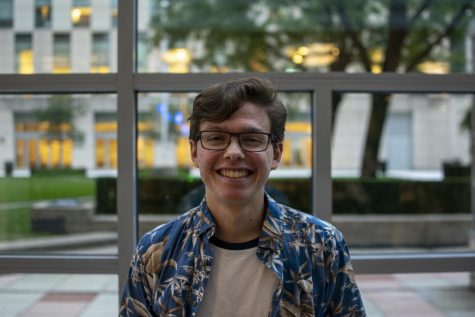A Brunch with Death: Student Caught in Meal Limbo
JON BJORNSON/THE OBSERVER
Plates are always empty during the No Meal Period as no one can feel hungry between 10:30 and 11 a.m.
October 26, 2017
UNDERGRADUATE DINING HALL—In the aftermath of what has been described by witnesses as “the greatest dining blunder in the past 10 years,” a local student has been taken into school custody, reportedly after attempting to acquire food in the undergraduate dining hall at 10:47 a.m. EST.
The news has blindsided Fordham Lincoln Center (FLC), as it is common knowledge that from Monday to Thursday, the dining hall serves breakfast from 7 a.m. to 10:30 a.m., lunch from 11 a.m. to 4 p.m. and dinner from 4 p.m. to 8 p.m.
The No Meal Period (NMP) from 10:30 a.m. to 11 a.m. has been a fixture of school dining policy since Fordham’s inception. The nature of the 30 minute blackout in meal coverage is largely unknown. Popular speculation points to a spacetime anomaly necessitating daily stabilization, explaining the interdimensional time beings on Fordham’s dining services payroll.
Upon detection and subsequent apprehension, the 18-year-old Caucasian male perpetrator in question was led out of the hall in handcuffs, stomach growling in defiance.
“You don’t mess with the schedule. Rules are rules, and if people start eating whenever they want, we’ll have anarchy,” explained a dining hall representative on the condition of anonymity. “Who could possibly be hungry at 10:45 a.m.?”
The idiocracy—or boldness—of the student’s actions has rocked the university to its very core. Support for the mealtime terrorist has manifested in elevator grumblings and unabashed dorm rants—which, thanks to McKeon Hall’s strategically thin walls, have allowed for quick detection and suppression by RAs. Conversely, support for the continued enforcement of the NMP has been resounding.
“It’s my job as an American to uphold every last societal convention I’ve been raised on to the letter,” said one concerned onlooker, peering through the street-level windows of the dining hall. “Liberal universities have kids questioning too much, and they act surprised when students choose to eat a sandwich after 10:30 and before 11. 10:45? Typical leftist ignorance.”
He ran away, shouting “Ignatius was a witch” over his shoulder, before he could be reached for further comment.
It is, understandably, ludicrous to imagine the precedent that could have been set had the student been served during the NMP. Similar alarming incidents of rogue eating, most notably foolhardy attempts to eat dinner after 7 p.m. on Saturdays, point to a similar conclusion: opportunities to fill students’ hedonistic stomachs outside of regular operating hours spell doom for the university.
This has not deterred school officials, as rumors of closing the NMP swirl through the university. A potential restructuring of operation hours smacks of 1930’s appeasement policy—all those familiar with “The Very Hungry Caterpillar” know the ramifications if an example is not made of this morning’s attempted 10:45 a.m. sandwich.
The 30 minutes between breakfast and lunch belong to no one. Fordham must not bend to the demands of its ravenous students: the NMP is a time for reflection and meditation just as the hours after 8 p.m., 7 p.m. on Saturdays, and 6 p.m. on Sundays are undoubtedly meant for intellectual stimulation and full-bellied studying.
The university surely holds its breath as a verdict is deliberated. In the meantime, students can rest easy knowing their full academic plates can be paired nicely with even fuller dining hall platters during normal operating hours. Fordham has put its trust in reason, tradition and cooler heads winning the day—one can only hope that rogue eating may prove to be just a passing fad.











